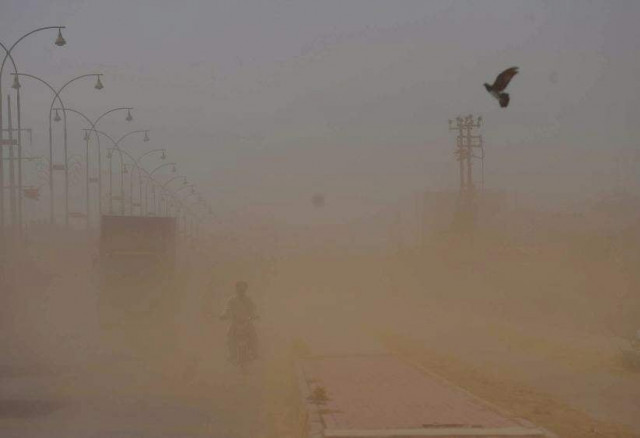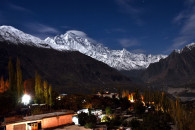Lecture: The complex equation of climate and health
Frequent extreme weather spells more disasters in the region: expert.

Lecture: The complex equation of climate and health
The emission of black carbon from cooking and heating sources in Asian countries including Pakistan is contributing to the challenges of global warming. The policymakers should take up the issue on priority.
This was discussed by Washington-based National Council for Science and Environment Director of International Programmes and Board Member Karim Ahmed, while delivering a lecture on the “The impact of climate change on human health” at the Sustainable Development Policy Institute here on Monday.
Black carbon formed by cooking is believed to be a major contributor towards global warming.
He suggested widespread replacement of traditional bio-fuel stoves using wood or dung with alternative technologies such as smokeless stoves and solar cookers as these chemicals are sources create a negative impact on climate change and human health.
The World Health Organisation estimates around 150,000 deaths annually across the globe, which are attributable to climate change.
Ahmed said that the climate issues need to be worked on for the coming generation. He highlighted that in Pakistan, the phenomenon has led to rising temperatures and more frequent droughts and floods.
“More frequent extreme weather events mean more potential deaths and injuries caused by storms and floods,” he said.
In addition, flooding can be followed by outbreaks of diseases, such as cholera, especially when water and sanitation services are damaged or destroyed, he added.
Ahmed said that it is increasingly apparent that many countries in developing regions will need to consider well-planned adaptation policies and practical measures to address local and regional impacts of climate change in the near future.
The United Nations Environment Programme Executive Director and former ambassador Shafqat Kakakel highlighted the growing global concerns, research initiatives and sufficient available knowledge to accept the changing climatic mechanism with its negative impacts on diverse walks of life.
He maintained that the health impacts are as important and adaptation measures are required on urgent grounds in order to cope with the mechanism.
Kakahel said that all measures to ensure protection from natural disasters have a price tag and its hard to make things happen within limited resources.
Published in The Express Tribune, March 20th, 2012.



















COMMENTS
Comments are moderated and generally will be posted if they are on-topic and not abusive.
For more information, please see our Comments FAQ